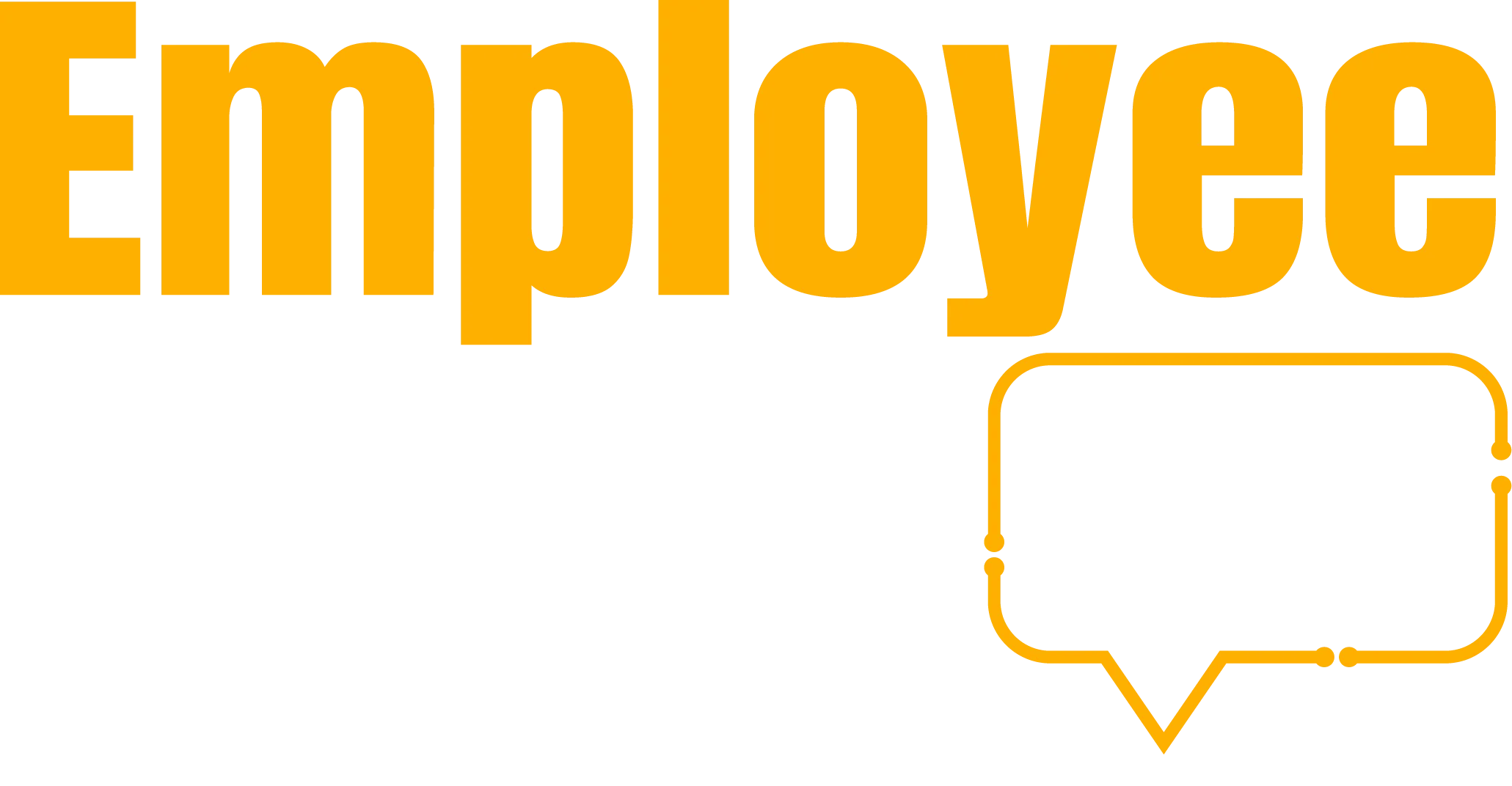Social media policy in HRM - The importance!
Social media is everywhere. It blurs the line between work and personal life. This interconnection offers great chances for employee engagement and information sharing. But, it also brings special challenges for HR and organizations. Social media is a double-edged sword. It can empower but also endanger. This leaves HR professionals wondering how to use its potential. They also want to reduce its risks.
This is where a sound Social Media Policy comes in. Think of it as your navigation tool. It's a clear and flexible set of guidelines. They give you knowledge and direction. You use them to create responsible and productive social media. This is for your whole workforce. Gone are the days of separate online and offline identities. Employees are now brand ambassadors. Their social media activity reflects the company's image. To protect this image, a good policy is needed. It will help employees use social media well and build on its positives.
What is social media policy?
A social media policy is a set of guidelines. It helps with the often-tricky online interactions. It sets expectations and boundaries for employees and the organization. It outlines proper conduct on social media. This "rulebook" promotes responsible digital citizenship. It safeguards your brand's reputation and ensures everyone acts professionally and ethically. This applies to both their official roles and personal online spaces.
Think of it as a guide. It helps employees know what's ok to share, how to represent the company, and what to avoid. It aims to protect the organization's reputation. It also aims to prevent legal issues and foster a positive online environment.
Key elements of a social media policy
- This includes all employees, contractors, and even volunteers. They might represent the organization online.
- This might cover things like company information. It includes personal opinions, and interactions with customers or colleagues.
- This could include harassment or discrimination. It also includes sharing confidential information. It also includes posting anything that could harm the company's reputation.
- This might involve using specific logos, hashtags, or language when discussing the organization.
- This could include customer data, trade secrets, or any personal information about colleagues.
- This might involve regular training. It will also involve monitoring online activity and punishing violations.
How important is social media policy?
A social media policy is very important for both employees and employers. It acts as a bridge between personal online lives and the professional workplace. Here's how it benefits each:
For employees:
- Clarity and confidence: A clear policy provides guidelines for online conduct. It gives employees confidence. They know what's expected and can avoid accidental missteps.
- Protection from overreach: A fair policy can shield employees from unfair employer monitoring. It can also protect their right to free speech outside of work.
- Building a positive online presence: Follow guidelines on conduct and brand representation. They help employees develop a stronger online presence. This benefits both their personal and professional brand.
- Responsible engagement: The policy can encourage responsible online communication. It promotes respectful interactions with colleagues, customers, and the public.
For employers:
- Protecting brand reputation: A clear policy helps protect the company's image and reputation. It does this by cutting the risk. Employees post damaging or inappropriate content.
- Boosting employee advocacy: Guidelines for positive brand representation can turn employees into valuable brand advocates. They promote the company through their social media networks.
- Preventing legal issues: The policy can prevent legal issues. It does this by tackling problems. These include online discrimination, harassment, and breaches of confidentiality.
- Fostering a positive work environment: The policy promotes respectful online communication. It can make work more positive and productive for everyone.
What should an employee social media policy address?
A good employee social media policy should cover these key points. It will help people navigate the online world well:
Scope and applicability:
- Who is covered by the policy? Clearly say if it applies to all employees, contractors, and company reps.
- Say whether the policy applies to personal and professional social media. Or, say if it only applies when employees are acting in a professional capacity.
Acceptable use:
- Outline what kind of content employees can share regarding the company. This could include positive mentions, company news, and participation in official campaigns.
- Say what information not to share. This includes secrets, like trade secrets, and internal talks.
Prohibited conduct:
List behaviors specifically that are unacceptable, such as:
- Harassment, discrimination, and offensive language.
- Sharing confidential information or intellectual property.
- Impersonating the company or colleagues.
- Engaging in illegal or unethical activities.
- Making false or misleading statements about the company or its products/services.
Brand Representation:
- Provide guidelines on how employees should represent the company brand online. This might include using official logos, hashtags, and language when referencing the organization.
- Encourage positive and respectful communication when discussing the company and its competitors.
Privacy:
- Say how employees should handle sensitive information. This includes customer data, employee data, and personal information about colleagues.
- Clarify expectations around using company software and devices for accessing personal social media.
Monitoring and Enforcement:
Explain how the policy will be enforced. This might involve regular training. It would include monitoring online activity and punishment for violations. Ensure a fair and transparent process for addressing potential policy breaches.
Additional Considerations:
- Disclaimer: The company is not responsible for employees' social media outside of work.
- Regular review and updates: Regular Review and Updates are needed. They should adapt the policy to reflect changes in technology, social media, and laws.
- Accessibility and communication: Make sure the policy is easy to reach for all employees. Also, provide chances for questions and clarification.
Address these key points. They will make your employee social media policy effective. The points will guide your workforce. They will help them behave online well. This protects both employees and the company in the ever-changing digital world.
How can social media policy for employees be distributed and implemented?
Simply having a social media policy isn't enough. Effective distribution and implementation are key to ensuring its success. Here's a guide for HR professionals. It will help ensure your social media policy reaches your employees. It will also help it resonate with them.
Distribution channels:
- Employee handbook: Put the policy in the handbook. Make it easy to find.
- Intranet and online resources: Upload the policy to your company's intranet, website, or internal knowledge base. This will make it easy to access online.
- New hire onboarding: Add the policy to new hire onboarding materials. Also, cover it in training sessions.
- Email communication: Send a company-wide email. It should announce the policy and highlight its key points.
- Posters and flyers: Posters and flyers should be hung in common areas. They will raise awareness and encourage employees to read the policy.
Implementation Strategies:
Training and workshops: Interactive training sessions can be conducted. They explain the policy's purpose, key clauses, and best online conduct practices.
Q&A sessions: Host Q&A sessions to address employee questions and concerns about the policy.
Regular communication: Regularly communicate updates or clarifications about the policy through various channels.
Positive reinforcement: Recognize and reward employees who show responsible online behavior.
Monitoring and enforcement: Set up a clear process to keep a track on policy violations. Enforce consequences fairly and consistently.
Tips for HR professionals to draft effective social media policies
- Tailor the Policy: Make sure it fits your company's culture and industry. Also, consider the social media platforms your employees use.
- Keep it simple and concise: Use clear, easy-to-understand language to avoid confusion.
- Focus on education and awareness: Instead of listing restrictions, emphasize the good parts of responsible social media use.
- Promote open communication: Encourage employees to come to you with questions or concerns.
- Be flexible and adaptable: Regularly review the policy and update it. Do this to keep up with the changing social media landscape.
What can be expected from this social media policy template?
A social media policy template is a good starting point, but it's not a magic formula. You need to customize it to fit your company's culture. Also, to fit your industry and employee platforms.
Think of the template as a roadmap. It has key parts. They cover important things, like:
Scope and applicability: Who does the policy cover? Can employees use social media for personal reasons? Which platforms matter?
Acceptable use: What can employees share about the company? What information should they keep private?
Prohibited conduct: What behaviors are not allowed? This includes things like harassment, discrimination, sharing confidential information, and spreading false information.
Besides to these main sections, you might want to include guidelines for:
Brand representation: Using logos, hashtags, and language that represent your brand well.
Privacy: How to handle sensitive information, like customer data and employee details. We keep a track on the policy. We will enforce it and punish violations.
Disclaimer: The disclaimer makes it clear that the company is not responsible for employees' personal social media activity.
Remember, the template is a starting point. You need to customize it to fit your company. This might involve making changes. You might need to add new sections and get legal review. This is to make sure it follows the rules. It's important to tell employees the policy. Train them on it. And update it often. This way, it becomes a useful document. It guides responsible online behavior in your company.
Here are some additional tips for using a social media policy template:
- Read it carefully and understand the different sections.
- Adapt the template to your specific company culture and industry.
- Add any additional sections or clauses that you need.
- Get legal review to ensure the policy is compliant with relevant laws.
- Communicate the policy effectively to all employees.
- Train employees on the policy and answer any questions they have.
- Regularly review and update the policy as needed.
Social media policy sample template
SOCIAL MEDIA POLICY
Introduction:
Social media is a big deal in today's world, and we want to make sure we're all on the same page about how we use it. This policy guides us on handling social media, whether it's for work or personal sharing.
Principles and Guidelines:
Using Social Media for Work:
1. Follow the Rules: Stick to our [Company’s Code of Conduct, Employee Handbook, and other company policies] when posting about [Company].
2. Think Before You Post: Be mindful of what you share online. Your posts reflect on you and [Company].
Things to Avoid:
3. Watch What You Share: No offensive or harmful content. Let's keep it positive and respectful.
4. Keep It Confidential: Don't spill company secrets. Check with HR or your supervisor if unsure.
Dealing with Tricky Situations:
5. If in Doubt, Ask: Unsure about a media request or tricky online situation? Ask someone from [Company] who knows.
6. Stay Cool: If an online conversation gets heated, step back. Let's keep things positive.
Respecting Others:
7. Get Permission: Before posting about colleagues or anyone else, get their okay. Don't use others' work without permission.
Conclusion:
Following these guidelines keeps our online presence positive and protects [Company]. If unsure, check with HR. Let's keep [Company] shining online! Ignoring these rules may lead to serious talks, so stay on board.
This policy may be updated, so feel free to ask questions. Thanks for keeping [Company] shining online!














.svg)
.svg)

